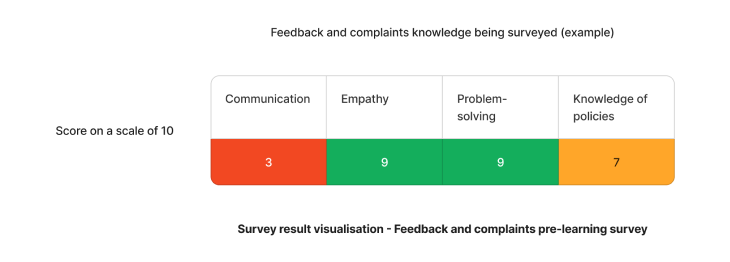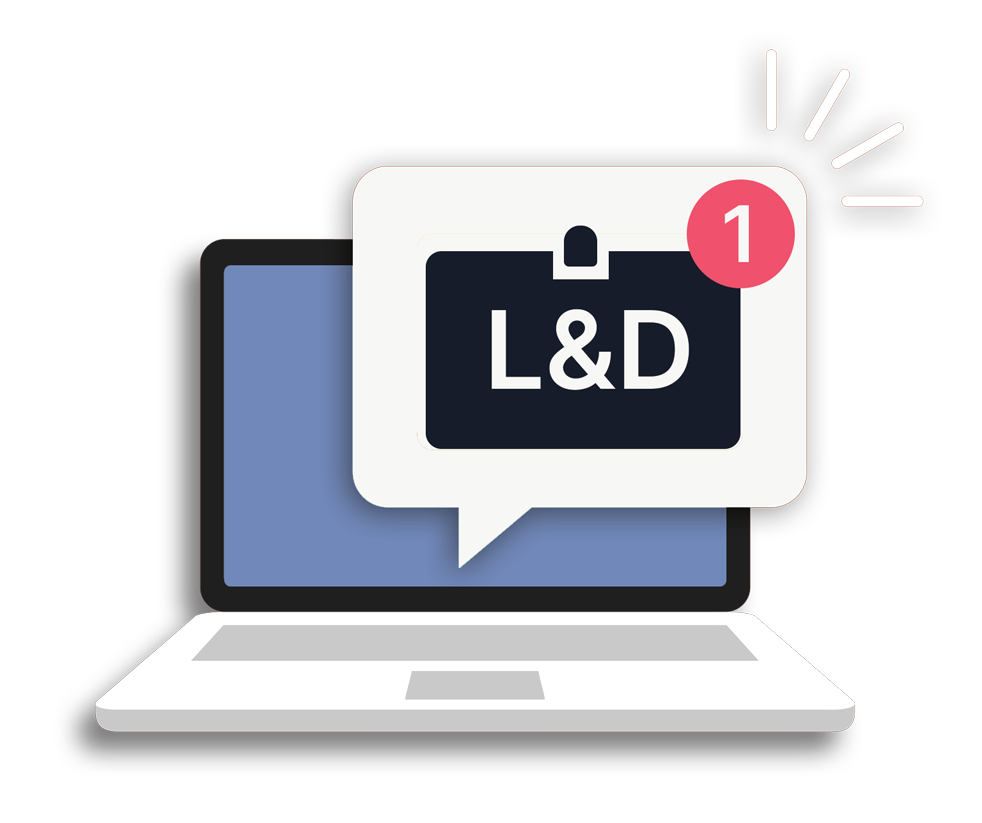This article is part of our Training Requirement Series, where we provide comprehensive guides to meet the actual training requirements that are often needed/requested of learning and development departments within Australia's healthcare organisations. This series includes both general requirements, such as managing feedback and complaints but also focuses on the specific requirements stemming from the NDIS, Aged Care and NSQHS Quality Standards.
What is "Feedback and Complaints Management"?
Feedback and complaints management in healthcare refers to the processes and systems established to receive, respond to, and manage feedback, including complaints, from patients, consumers, their families, and other stakeholders. This function is crucial for identifying service gaps, addressing patient/consumer concerns, and improving overall care quality.
The Importance of Feedback and Complaints Management in Healthcare
Effective feedback and complaints management is vital for enhancing patient/consumer safety, improving care quality, and maintaining trust in healthcare services. It provides valuable insights into care experiences and highlights areas for improvement. By addressing concerns promptly and effectively, healthcare providers can demonstrate their commitment to care and continuous improvement.
What is the "Feedback and Complaints Management" Training Requirement?
Training in feedback and complaints management is essential for healthcare staff. It equips them with the knowledge and skills necessary to handle sensitive issues professionally and empathetically. Training should cover legal and ethical aspects, communication skills, and procedures for managing and resolving complaints in line with NSQHS and Aged Care Standards.
Relevant Standards
The organisation:
- Has processes to seek regular feedback from patients, consumers, carers, and families about their experience and outcomes of care
- Has processes to regularly seek feedback from the workforce on their understanding and use of the safety and quality systems
- Uses this information to improve safety and quality systems
The organisation has complaint-management systems in place that:
- Encourages and supports patients, consumers, carers and families, and the workforce to report complaints
- Involves the workforce and consumers in the review of complaints
- Resolves complaints in a timely way
- Provides timely feedback to the governing body, the workforce and consumers on the analysis of complaints and actions taken
- Uses information from the analysis of complaints to inform improvements in safety and quality systems
- Records the risks identified from the analysis of complaints in the risk management system g. Regularly reviews and acts to improve the effectiveness of the complaints management system
National Safety and Quality Health Service (NSQHS) Standards
Requirement 6.3: Feedback and complaints:
- a) Consumers, their family, friends, carers and others are encouraged and supported to provide feedback and make complaints.
- b) Consumers are made aware of and have access to advocates, language services and other methods for raising and resolving complaints.
- c) Appropriate action is taken in response to complaints, and an open disclosure process is used when things go wrong.
- d) Feedback and complaints are reviewed and used to improve the quality of care and services.
Requirement 8.3 (c): Governance systems:
Effective organisation-wide governance systems relating to the following:
- (vi) feedback and complaints.
Action 2.6.1: Complaints management systems:
The provider implements a complaints management system to receive, record, respond to and report on complaints.
Action 2.6.2: Encouraging client feedback:
The provider encourages and supports older people, families and carers, workers and others to provide feedback and make complaints.
Action 2.6.3: Empowering client feedback with advocates:
Older people are empowered to access advocates, language services and other ways of raising and resolving feedback and complaints.
Action 2.6.4: Complaint resolution and open disclosure:
The provider takes timely action to resolve complaints and uses an open disclosure process when things go wrong.
Action 2.6.5: Reporting complaint outcomes:
The provider collects and analyses feedback and complaints data. Outcomes are reported to the governing body, older people and workers and inform the provider’s quality system to improve the quality of care and services.
Action 2.6.6: Reviewing and improving complaint management systems:
The provider regularly reviews and improves the effectiveness of the complaints management system.
Strengthened Quality Standards framework analysis - Aged Care Quality Standards
Failure to comply with the requirements could lead to an organisation being penalised or reprimanded.
Related Training Requirements Guides
The following Training Requirement guides can be used to support and facilitate the "feedback and complaints management" training requirement:
Skills Required for Feedback and Complaints Management
Staff involved in feedback and complaints management must possess a range of skills such as effective communication, empathy, problem-solving, and a thorough understanding of healthcare policies and procedures. These skills are crucial for appropriately addressing and resolving issues raised by patients/consumers and their families.
- Communication: Clear and compassionate communication is essential for understanding and addressing concerns.
- Empathy: The ability to empathise with patients, consumers and their families is crucial in handling complaints sensitively.
- Problem-solving: Effective resolution of issues requires strong problem-solving skills.
- Knowledge of Policies: Understanding relevant healthcare policies, procedures, and standards is critical.
How to Assess Staff Competency in Feedback and Complaints Management
Assessing staff competency involves evaluating their ability to handle feedback and complaints effectively. This can be achieved through various methods:
- Performance Reviews: Regular evaluations of how staff handle feedback and complaints.
- Direct Observation: Supervisors can observe staff interactions with patients/consumers to assess their complaint-handling skills.
- Feedback from Patients/Consumers: Surveys can provide insights into the effectiveness of staff responses to complaints.
Strategies to Support Healthcare Staff Develop Skills in Feedback and Complaints Management
Strategies to enhance skills in feedback and complaints management including the following:
- Interactive Training Workshops: Sessions focusing on case studies, role-playing, and group discussions to enhance practical skills.
- Continuing Professional Education: Regular updates and training on new medications, guidelines, and best practices.
- Mentorship Programs: Pairing less experienced staff with seasoned professionals for guidance and support.
- Online Resources and Modules: Accessible materials for self-paced learning and reference.
- Feedback Mechanisms: Systems for staff to receive constructive feedback on their performance and areas for improvement.
Sample Training Plan for the Feedback and Complaints Management Requirement
A structured training plan is essential for developing quality improvement skills.

Using the above needs assessment survey as an example - The skill requiring the most attention for reinforcing feedback and complaints management in healthcare is communication skills. We can target learning initiatives to fill these gaps to enhance staff competency.
| Quarter | Topics | Resources |
|---|---|---|
| Q1 | Communication skills |
Need an LMS that can support feedback and complaints management training?
Contact Ausmed today and see how we can support with your training requirement needs!
Staff Competency Assessment for Providing Feedback and Complaints Management - Example
Consider the following survey questions to evaluate staff feedback and complaints management skills:
Staff Survey - Feedback and Complaints Management Competency
-
How do you handle receiving negative feedback from a patient/consumer?
- [Answer here]
-
What steps do you take to ensure a complaint is resolved effectively and fairly?
- [Answer here]
-
How do you maintain impartiality when dealing with complaints?
- [Answer here]
Conclusion
Effective feedback and complaints management is essential in healthcare for improving service quality, patient/consumer safety, and satisfaction. By equipping healthcare staff with the necessary training, skills, and support, organisations can ensure effective management of feedback and complaints, leading to better outcomes and enhanced service quality.
References
- Australian Commission on Safety and Quality in Health Care, 2023. 'Clinical Governance Standard'
- Australian Commission on Safety and Quality in Health Care, 2023. 'NSQHS Action 1.13'
- Australian Commission on Safety and Quality in Health Care, 2023. 'NSQHS Action 1.14'
- Aged Care Quality and Safety Commission, 2023. 'Requirement 6.3 - Feedback and Complaints'
- Aged Care Quality and Safety Commission, 2023. 'Requirement 8.3 (c) - Governance Systems'
- Aged Care Quality and Safety Commission, 2023. 'Stronger Standards, Better Aged Care Program - Action 2.6.1-2.6.6'


